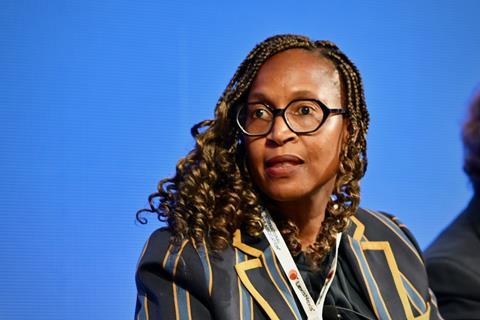All legal practitioners have a duty to help challenge negative perceptions of lawyers, the world’s largest gathering of the profession heard this week.
The annual conference of the International Bar Association marked the formal publication of an international study which concludes that the legal profession generates direct economic benefits of $1.6 trillion a year.
The Impact Report also shows strong correlations between legal activity and economic growth and societal progress as measured against the UN’s Sustainable Development Goals.
Despite this, public recognition of the positive role of lawyers is low: an IBA survey found only 54% of the general public believe that lawyers have a positive economic and social impact. This opinion is shared by 78% of professionals themselves.
‘The problem is the narrative,’ Tshepo Shabangu, partner at South Africa firm Spoor & Fisher, told the event. ‘There is not enough information about all the good that lawyers are doing.’
Shabangu cited two South African cases that could help the profession’s image. One was the group action on behalf of gold miners over industrial diseases, the other was the fight for royalties for the family of Solomon Linda, composer of Mbube, which became a worldwide hit as 'The Lion Sleeps Tonight'. ‘Both cases illustrate the positive role of lawyers,’ she said.

Meanwhile Ken Murphy, former director general of the Law Society of Ireland, cited the Irish case of Best v Wellcome over a vaccine which led to brain damage. ‘It was a case of representing the weak against the strong, it showed the legal profession at its best. We have to tell stories and do it with the best means of communication available,’ he said.
One public perception that must be changed, according to veteran human rights lawyer Baroness Kennedy of the Shaws (Helena Kennedy KC), is the association of lawyers with their clients. ‘We are not hired guns, just there to do what the clients want,’ she said. And lawyers acting for unpopular clients play a crucial point in sustaining the rule of law. ‘We are all human rights lawyers,’ she said. ‘Law is a tapestry and if one part of it is frayed, that reflects on us all.’
The IBA report, compiled with the help of management consultants McKinsey, also highlights the wider benefits of access to justice. Among its findings is that countries with better access to justice suffer 25% fewer incidents of ‘governmental overreach’.
Another prominent UK attendee, former attorney general Lord Goldsmith (Peter Goldsmith KC), stressed that pro bono work cannot fill the access to justice gap. ‘You can’t just depend on the goodwill of lawyers: there is a big role for government and public agencies,’ Goldsmith said.
Former IBA president David W. Rivkin said the IBA’s findings quantifying the value of the profession could help change the popular agenda. ‘It is incumbent on all of us to go back to our home countries and to use this report to help explain to the public how we contribute,’ he concluded.
This article is now closed for comment.





























2 Readers' comments